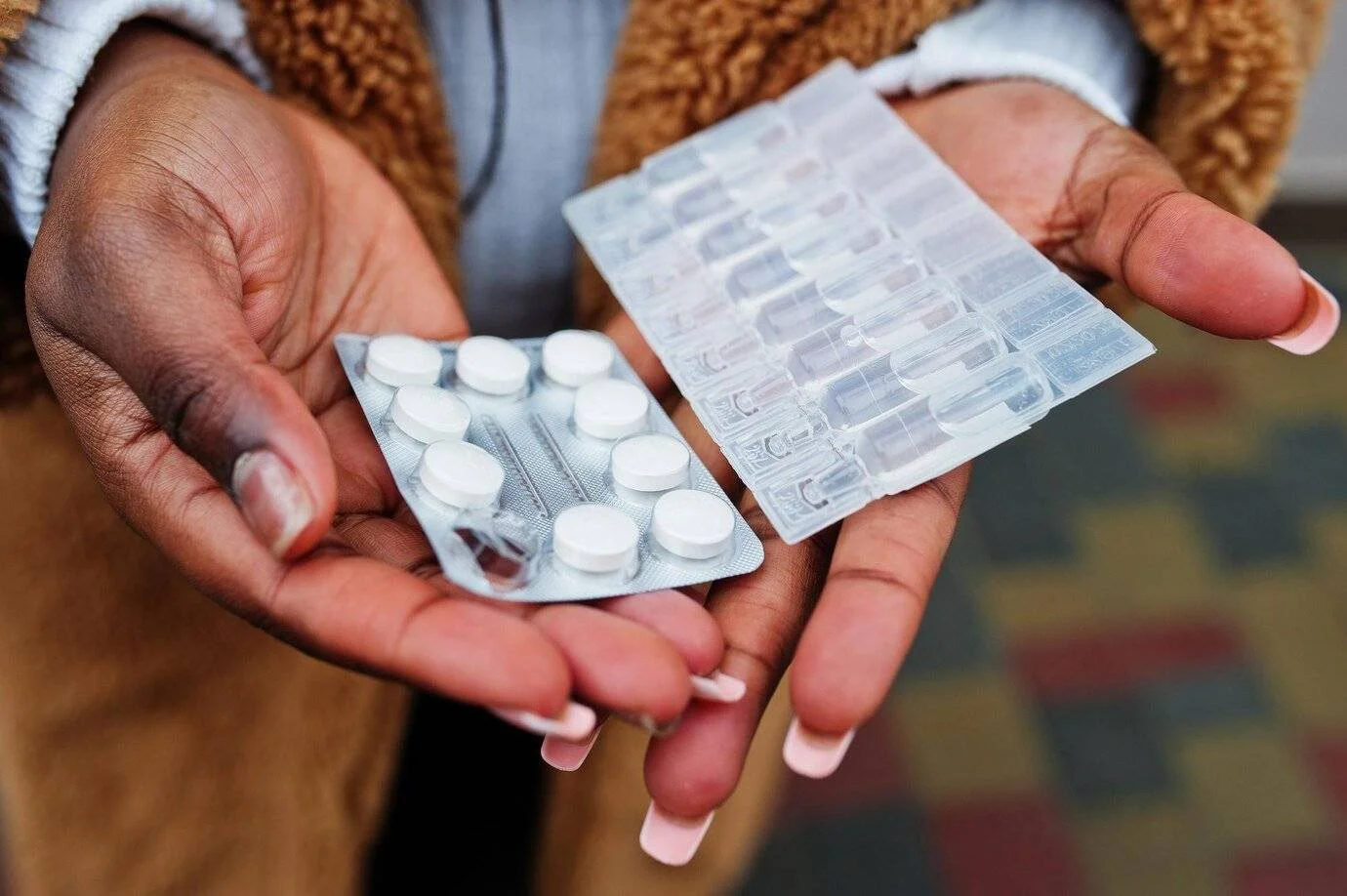When it comes to ‘antibiotics’ they are considered crucial for treating illnesses and life-threatening infections. However, in Nigeria, the way to the safe application of antibiotics is far from ideal. Whether it is over-the-counter medication misuse or rural communities with limited access, the state of antibiotics in Nigeria stands as a complex public health challenge. Travelers, and healthcare workers, as well as local Nigerians prevent antibiotic resistance and promote good health by understanding the correct and incorrect usage of antibiotics. However, what factors led to the present state, and what actions are being taken towards recovering it?
Understanding Antibiotics in Nigeria: A Double-Edged Sword
In Nigeria, antibiotics represent both a savior and a dilemma. On the one hand, they allow for the effective treatment of bacterial infections like pneumonia, typhoid, and urinary tract infections. Conversely, the fact that they are easily accessible without medical prescriptions has led to widespread misuse.
Antibiotic drugs are frequently found in the hands of unqualified street pharmacist and vendors who often sell them without the necessary prescription, counseling or a diagnosis from a doctor. This situation causes the antibiotics to lose their effectiveness over time due to the development of antimicrobial resistance (AMR). The Nigerian National Antimicrobial Stewardship Taskforce (NNAST) is the major regulatory institution responsible for managing the situation by encouraging the rational use of antibiotics in hospitals and other healthcare facilities throughout the country.
Popular Antibiotics in Nigeria and Their Misuse
Some of the most popular antibiotics in Nigeria include:
- Amoxicillin
- Ciprofloxacin
- Metronidazole
- Cefuroxime
Although these types of antibiotics are largely effective for the treatment of bacterial infections, the reality is that they are often overused or misused. For instance, people may take them for viral infections such as flu and colds which are conditions that antibiotics are incapable of treating. What is even worse is that patients frequently discontinue the antibiotics once they feel better, without finishing the dose prescribed. The fact that some bacteria can survive this partial treatment, which gives them a chance to become resistant.
The Nigerian National Antimicrobial Stewardship Taskforce (NNAST), through its research, has found that this is one of the leading causes of the drug-resistant infections in Nigerian hospitals, many of which now have fewer treatment options available.
Challenges to Accessing Antibiotic Drugs in Nigeria
Misinformation plays a more significant role in metropolitan cities due to the over-availability of drugs. In contrast, rural areas have to deal with the pretty sad problem of unavailability. This is due to the fact that most of the ambulant drug sellers are not licensed or trained and hence no licensed pharmacies and hospitals exist in many remote areas.
These sellers provide either counterfeit or expired antibiotic drugs, putting people’s lives at risk. Even when genuine medicines are available, however, the issue of affordability exists. A large number of Nigerian populations finds it hard to get the regular healthcare treatment, which is associated with the fact that many people pay for healthcare out of their pockets.
The Nigerian National Antimicrobial Stewardship Taskforce (NNAST) is using a more structured and organized drug distributing model to effectively reaches every corner of the country with only quality-assured antibiotics.
How Poor Regulation Fuels Resistance
In Nigeria, the regulations exist only on documents, whereas the enforcement is quite weak. Antibiotics in Nigeria are often sold in pharmacies without a prescription. Roadside stalls and local markets are even worse, because they offer medications to anyone who has cash without expecting a prescription.
There’s also a lack of monitoring on how antibiotic drugs are prescribed in hospitals. Some healthcare providers prescribe antibiotics more than one time due to either the wrong diagnosis or patients’ influence who want to get medicines after every examination.
The absence of far-reaching surveillance ushers resistant bacteria in the communities in a silent way, thereby raising the chances of people getting untreatable infections.
What Travelers Need to Know About Antibiotics in Nigeria
If you’re planning to visit Nigeria, it’s best you prepare smartly:
- Carry along a personal supply of basic antibiotic drugs (with a doctor’s prescription).
- Avoid buying drugs from any unlicensed street vendors.
- Go to reputable clinics or hospitals only for medical care.
- Be aware that common types of antibiotics might not work if resistance is high in the area.
Also, be careful about the water and food hygiene to lower the chances of needing antibiotics in the first place.
Travelers are very likely to benefit by understanding about the antibiotics in Nigeria beforehand. Thus, they will receive proper medical assistance without contributing to the widespread antibiotic resistance problem.
Hope for the Future: Education and Stewardship
The efforts meant for raising public awareness are on the rise facilitated by health NGOs, government campaigns, and professional bodies. Medical professionals are being trained and instructed about the responsible use of antibiotic drugs, and schools are incorporating drug safety education into their curriculums.
In rural Nigeria, slow but meaningful progress is also being made, mainly through community outreach programs. Posters, radio announcements, and door-to-door campaigns are used to explain when, how and what types of antibiotics should be used—and when they should not.
Above all, Nigeria needs a culture shift around the proper usage of antibiotics. The Nigerian National Antimicrobial Stewardship Taskforce (NNAST) is continuously advocating for major national reforms in terms of doctors’ prescribing and treatment practices, pharmacy licensing, and patients’ education.
Conclusion: A Country at a Crossroads
The situation of antibiotics in Nigeria is all about urgent attention, transition of deadly misuse, and hopeful progress in the sector. From downtown health facilities to country hospitals antibiotics are the topic of discussion. But long-lasting impact requires government, medical practitioners, pharmacists, and the community to work together.
Whether you’re a local resident, a healthcare provider, or a visitor, being informed about antibiotic drugs in Nigeria is not just a personal health step—it’s a move toward protecting an entire population.
Will Nigeria be able to carry the balancing act of being fully responsible with medicine access? The answer to this question depends on our collective actions and efforts.
Frequently Asked Questions (FAQs)
Can I buy antibiotics over the counter in Nigeria?
Yes, but it’s not recommended. While many pharmacies sell antibiotic drugs without a prescription, it’s best to consult a qualified doctor to avoid misuse.
What are the most commonly used antibiotics in Nigeria?
Popular antibiotics in Nigeria include amoxicillin, ciprofloxacin, metronidazole, and cefuroxime, though their use should always be guided by a doctor.
Is antibiotic resistance a problem in Nigerian hospitals?
Yes. Overuse and improper prescription practices have made many bacterial infections harder to treat, especially in major urban hospitals.
Are antibiotics safe to use for travel-related illnesses in Nigeria?
Only if prescribed by a medical professional. Self-medicating while traveling can increase health risks and contribute to resistance.
How is Nigeria addressing misuse of antibiotics?
Organizations like the Nigerian National Antimicrobial Stewardship Taskforce (NNAST) are educating providers and the public on safe antibiotic practices.



